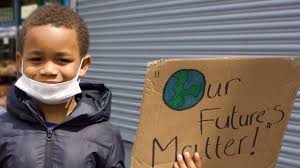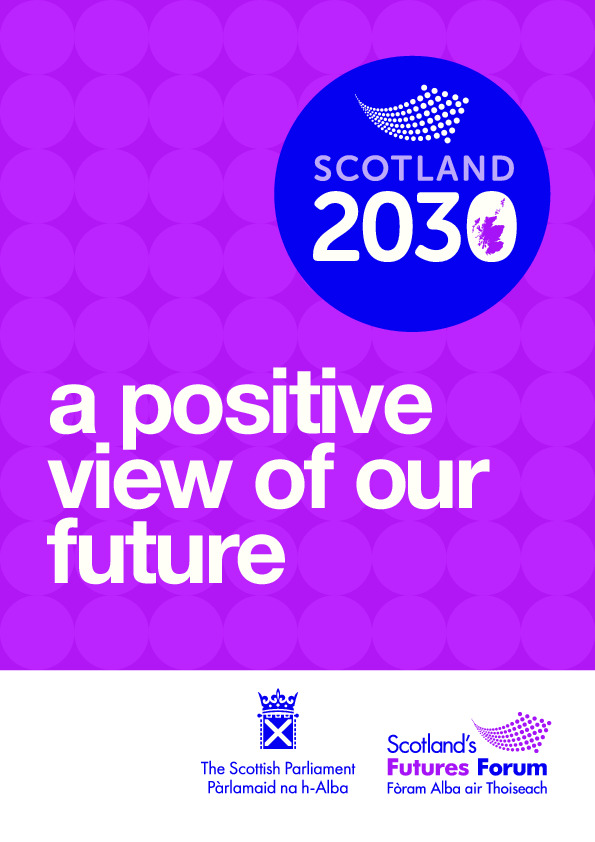Scotland 2030: Empathetic, Equitable and Joyful
After her participation in a 2020 Festival of Politics event on Scotland in 2030, chaired by Presiding Officer Ken Macintosh MSP, writer and presenter Tomiwa Folorunso shares her reflections on the next 10 years.
Scotland’s Futures Forum has been investigating the kind of Scotland we want to be in 2030 and beyond. There are things we can predict like birth and death rates, things we have the power to change; climate change and then there are the things we cannot predict and maybe can’t even imagine.
2030 feels incredibly far away and as if it could be here tomorrow. Ten years ago, I would never have imagined, or believed, that this year would be what it has been. The Presiding Officer asked us to share three words to describe our hopes for Scotland in 2030 and beyond. I chose empathetic, equitable and joyful. These words are a culmination of my experiences of growing up in Scotland, the Covid-19 pandemic we are living in and the Black Lives Matter protests in Scotland*.
Equity and equality are often used interchangeably, they both desire the same thing but have different means. Equity is vital: our society is not equal; each person has different needs. We all need a lot of the same things but how much help or support we need, from each other and the state, is dependent on our circumstances. In the Scotland we envision, we should all be able to flourish and to do that we need equity.
The Presiding Officer asked us to share three words to describe our hopes for Scotland in 2030 and beyond. I chose empathetic, equitable and joyful.
To create an equitable society, we should also be empathetic. An empathetic Scotland prioritises care, kindness and understanding. Be that how we treat people who are homeless or a person with a mental illness. But empathy must be active, marginalised voices must be listened to and they must always be seated at the table, wherever that table may be.
I had originally written down sustainable as my final word and at the last minute changed it to joyful. Until recently I have never thought joy as something that a society should strive for, I have often seen it as a by-product but not an essential. But I think it could be and it should be.
Since I have been able to vote, I have voted in three UK general elections, one Scottish parliamentary election, and two life changing referendums. My peers and I are living in a world that is so different from the one our parents graduated into, from being priced out of the cities we were raised in, to cuts to public services, the arts and culture.
If anything, this pandemic has taught many of us what is and what is not important
To be so connected to many parts of the world, is both a blessing and a curse. It can feel overwhelming and hopeless. It is imperative that we find ways to centre joy. To have the space to feel joyful and hopeful should not be a privilege, it is something we also deserve and have a right to as human beings. I do not wish to erase or gloss over the number of lives and livelihoods that have been lost and ruined by this pandemic. If anything, this pandemic has taught many of us what is and is not important.
Scotland cannot be joyful without also being empathetic and equitable, I am hopeful for 2030, but I think I am more hopeful for beyond. A beyond that I may never see, and if I have children, they may not see it either, but that’s okay, because eventually, it will be.
*The Black Lives Matter protests in Scotland during summer 2020 were particularly poignant because I had never seen such a visible presence in support of Black lives in Scotland before then.

Tomiwa Folorunso is a writer and presenter from Edinburgh.
She is currently the Scotland regional editor for Black Ballad and a commissioning editor at Bella Caledonia.
She is on Twitter @tomiwa.
Scotland’s Futures Forum exists to encourage debate on Scotland’s long-term future, and we aim to share a range of perspectives. The views expressed in this blog are those of the author and do not necessarily reflect the Futures Forum’s views.







